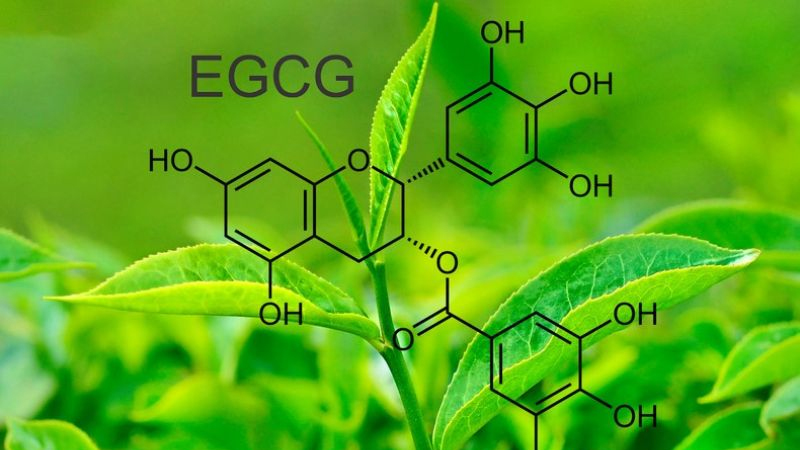Introduction
Green tea has been consumed for centuries in Asia and is now one of the most popular beverages worldwide, praised for its refreshing taste and potential health benefits. Modern research attributes much of green tea’s power to its high concentration of catechins—a type of natural antioxidant belonging to the flavonoid family. Catechins, particularly epigallocatechin gallate (EGCG), are believed to play a central role in green tea’s effects on metabolism, cardiovascular health, brain function, and disease prevention.

In this article, we will explore the science-backed health benefits of green tea and catechins, covering everything from weight management to heart health, and provide a detailed look at how you can incorporate green tea into your lifestyle.
What Are Catechins?
Catechins are a group of polyphenolic compounds found abundantly in green tea leaves. The main catechins in green tea include:
- Epigallocatechin gallate (EGCG) – the most active and studied catechin.
- Epicatechin (EC)
- Epigallocatechin (EGC)
- Epicatechin gallate (ECG)
These compounds act as powerful antioxidants, protecting cells from oxidative damage caused by free radicals. Unlike black tea, which undergoes fermentation that reduces catechin content, green tea is minimally processed, preserving high levels of these beneficial compounds.
1. Antioxidant Properties and Oxidative Stress Reduction
One of the primary health benefits of catechins is their ability to neutralize free radicals. Excess free radicals can damage DNA, proteins, and lipids, contributing to aging and chronic diseases such as cancer, heart disease, and diabetes.

Studies show that green tea catechins significantly increase the body’s antioxidant capacity, reducing oxidative stress and protecting cells from long-term damage (Yang et al., 2009).
2. Green Tea and Weight Management
Green tea is frequently associated with weight loss and fat burning, largely due to catechins like EGCG. Research indicates that green tea can:
- Boost metabolism: Catechins help increase energy expenditure and fat oxidation.
- Enhance fat burning during exercise: Studies suggest combining green tea with moderate exercise improves fat-burning efficiency.
- Support abdominal fat reduction: Regular consumption has been linked with decreases in visceral fat, which is closely associated with metabolic disorders (Hursel et al., 2009).
This makes green tea a popular choice in weight management programs.
/https://cms-prod.s3-sgn09.fptcloud.com/giai_dap_thac_mac_uong_tra_o_long_co_giam_can_khong1_13fbabe2bd.jpeg)
3. Cardiovascular Health Benefits
Green tea consumption is strongly linked to better heart health. Catechins have been shown to:
- Lower LDL cholesterol (“bad cholesterol”).
- Increase HDL cholesterol (“good cholesterol”).
- Improve blood vessel function by enhancing endothelial health.
- Reduce blood pressure and prevent arterial stiffness.
Large-scale population studies in Japan have found that regular green tea drinkers have a reduced risk of cardiovascular mortality (Kuriyama et al., 2006).
4. Blood Sugar Regulation and Diabetes
Catechins may help improve insulin sensitivity and regulate blood sugar levels, making green tea beneficial for people with type 2 diabetes or those at risk. Research suggests that EGCG can enhance glucose uptake by cells and reduce blood sugar spikes after meals (Iso et al., 2006).
5. Brain Health and Neuroprotection
Green tea is also linked to improved brain function and protection against neurodegenerative diseases. Key effects include:
- Cognitive performance: Green tea catechins, along with caffeine and L-theanine, enhance alertness, memory, and attention.
- Neuroprotection: EGCG may help protect brain cells from oxidative stress and reduce the risk of Alzheimer’s and Parkinson’s disease (Mandel et al., 2011).
- Mood support: Drinking green tea has been associated with lower stress and improved mood.

6. Anti-Cancer Potential
Although research is ongoing, catechins—particularly EGCG—are being studied for their anticancer properties. Laboratory and animal studies show catechins can:
- Inhibit tumor growth.
- Prevent angiogenesis (formation of new blood vessels that feed tumors).
- Promote apoptosis (programmed cell death of cancer cells).
While more human clinical trials are needed, epidemiological studies suggest that populations with higher green tea intake may have lower rates of certain cancers, including breast, prostate, and colorectal cancers (Khan & Mukhtar, 2013).
7. Anti-Inflammatory Properties
Chronic inflammation is a root cause of many diseases, including arthritis, heart disease, and metabolic syndrome. Catechins possess strong anti-inflammatory properties, reducing inflammatory markers and modulating immune system responses. This makes green tea a natural option for reducing low-grade chronic inflammation.
8. Oral Health Benefits
Green tea has antimicrobial effects that can benefit dental health. Catechins help:
- Reduce the growth of harmful oral bacteria.
- Lower the risk of bad breath (halitosis).
- Protect against cavities and gum disease.
This is why green tea extracts are often used in natural oral care products.

9. Liver Health and Detoxification
Some studies suggest green tea catechins may help protect the liver from damage caused by toxins, alcohol, and high-fat diets. However, very high doses of green tea extract supplements have been linked to liver toxicity in rare cases, so moderation is key.
10. Longevity and Overall Health
One of the most compelling findings is the potential of green tea to promote longevity. Large population studies in Japan and China have shown that people who drink several cups of green tea daily tend to live longer, healthier lives, likely due to a combination of its metabolic, cardiovascular, and anti-inflammatory benefits.
How to Incorporate Green Tea Into Your Lifestyle
- Daily consumption: 2–4 cups per day is often recommended for health benefits.
- Matcha: Provides a higher concentration of catechins since the whole leaf is consumed.
- Supplements: Green tea extract capsules are available, but dosage should be carefully monitored.
- Pairing with meals: Drinking green tea with meals may reduce cholesterol absorption.
Tip: Avoid adding milk to green tea, as it may reduce antioxidant activity.

Safety and Considerations
While green tea is generally safe, excessive intake (especially of concentrated extracts) can cause:
- Stomach upset
- Caffeine-related side effects (insomnia, jitteriness)
- Rare cases of liver issues at high supplemental doses
Pregnant women should consult their doctor before consuming large amounts of green tea or supplements.
Conclusion
Green tea and its catechins, particularly EGCG, offer a wide range of health benefits—from supporting weight management and heart health to improving brain function and reducing inflammation. While not a magic cure-all, green tea is one of the most well-studied natural beverages with consistent evidence for positive effects on overall health and longevity. Incorporating green tea into your daily routine may be a simple and enjoyable step toward better health.
